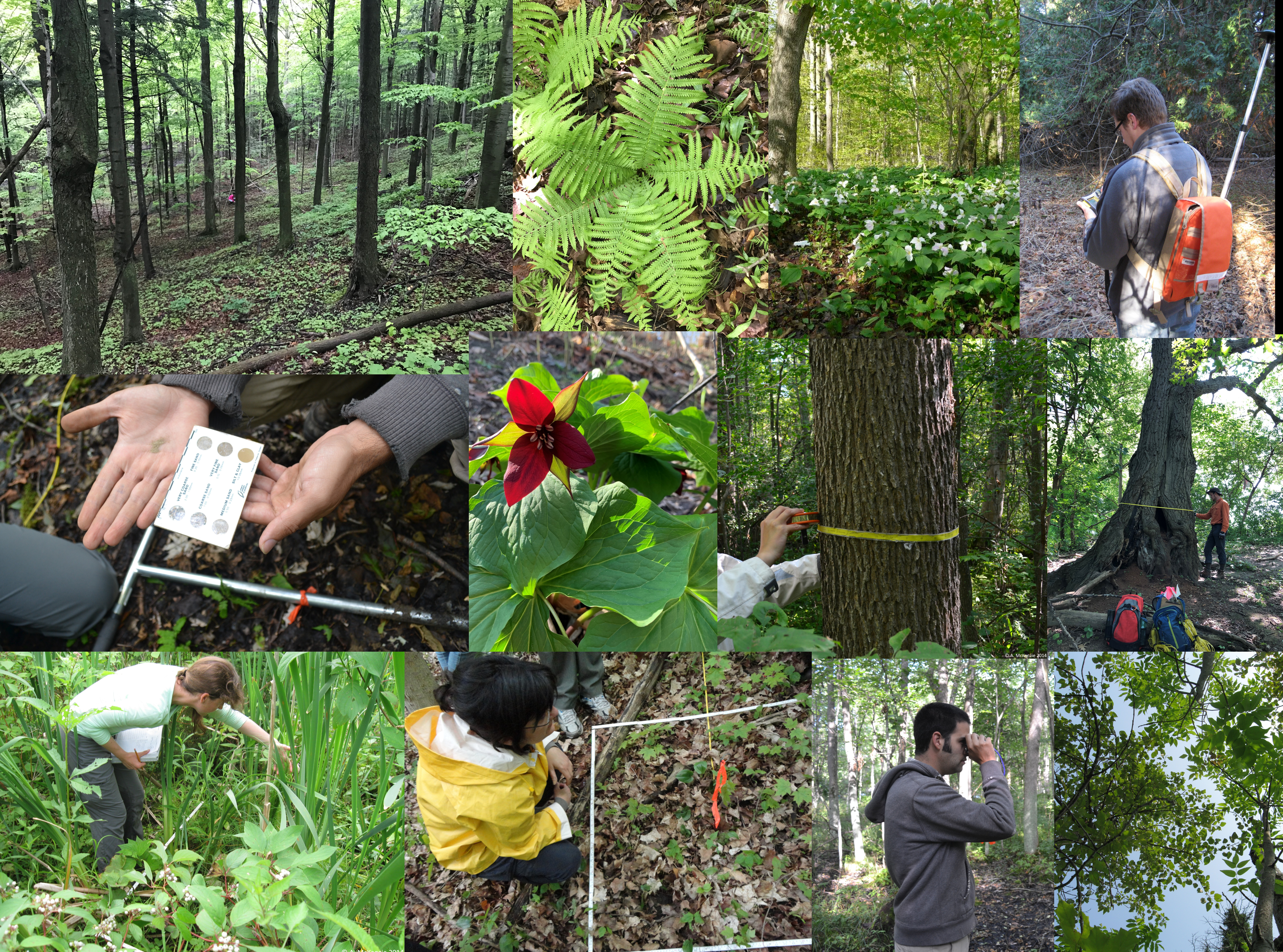Vegetation & Ecosystem Health Monitoring in Southern Ontario

FOR3016: Vegetation & Ecosystem Health Monitoring in Southern Ontario
Meeting Section: L0101
Instructor: Danijela Puric-Mladenovic
Dates: May 20-June 30, 2025
Mode: In-Person
Forests and natural vegetation, as producers and providers of diverse ecological functions, are also the backbone of biodiversity, sustainability and numerous ecological goods and services. As building blocks of green infrastructure across landscapes, they also serve as a natural climate solution, providing the most efficient and sustainable way to combat climate change, biodiversity loss and environmental degradation. Vegetation functions, productivity, vulnerability, and resilience to anthropogenic and environmental impacts are the products of its structure, composition, health, environmental condonations, and disturbances, which all need to be measured, quantified, and monitored over time.
This elective course introduces graduate students to key topics related to the conservation, restoration, and management of vegetation, as well as the application and significance of standard, quantitative, and geo-referenced vegetation information.
The specific course objectives are to provide students with: 1) an understanding of southern Ontario vegetation; 2) theoretical and practical skills in vegetation monitoring and field sampling; 3) insight into vegetation informatics and how to effectively collect, record, and manage monitoring data; 4) competencies in using, analyzing, summarizing, and interpreting vegetation information; 5) skills for utilizing field data in analysis and writing a summary of findings; and 6) knowledge and skills that are transferable to the job market, research, and professional projects.
This field-based course combines theoretical and hands-on experiences, providing an experiential learning opportunity in vegetation sampling, monitoring, and the study of Southern Ontario vegetation, encompassing forest communities and their classification (e.g., ELC, wetland classification), native and non-native plant identification, forest mensuration, and the essential applications of vegetation information. The course will introduce students to the fundamentals of Southern Ontario vegetation, emphasizing the importance of standardized, quantitative, and georeferenced vegetation sampling, bioinformatics, and data applications. Students will gain experience in collecting and interpreting data to describe and quantify the health, condition, and status of vegetation and forests. They will acquire both theoretical and practical knowledge in various skills, including field sampling, plant identification, forest mensuration, GPS usage, and navigation, which are transferable to their specific graduate projects and future employment. Through field sampling and individual projects arising from collected data, students will gain practical experience related to concepts and field methods in vegetation and forest monitoring. They will learn to extract relevant information from field data and draw conclusions based on specific questions or objectives of interest.
During field sampling, students will also have an opportunity to interact with and learn from established botanists, conservationists, and other professionals.
Course components comprise background lectures, two weeks of field sampling, readings, and a final individual summary assignment utilizing field data.
In 2025, the course will take place from May 20 to June 30. Field days will involve daily trips to the sampling sites and will occur every day from May 20 to May 30. During this period, students will spend two weeks exploring various vegetation types, ranging from upland and swamp forests to wetlands and disturbed areas. The fieldwork will be conducted around the Greater Toronto Area, north of Toronto, at the Koffler Scientific Reserve at Jokers Hill, on the Oak Ridges Moraine, within the Lake Simcoe watershed, and in the York and Durham Regions. The post-field lectures will be delivered virtually in June, featuring weekly evening sessions to accommodate summer MFC internships.
Requirements
This graduate-level course requires prior knowledge of plants, as well as the ability to identify them and learn the names of various plant species. A degree in forestry, biology, ecology, landscape architecture, or a related field, along with experience in plant identification, is recommended.
The course is available to graduate students not enrolled in the Daniels Faculty, although those from the Daniels Faculty, MFC, and MLA programs receive priority. Additionally, the course is limited to 20 students.
The course does not require overnight stays, as all course sites are located within the Greater Toronto Area (GTA). Students are responsible for their food and transportation to and from the field sites. They should also come prepared for long days and outdoor conditions with suitable clothing and footwear.

